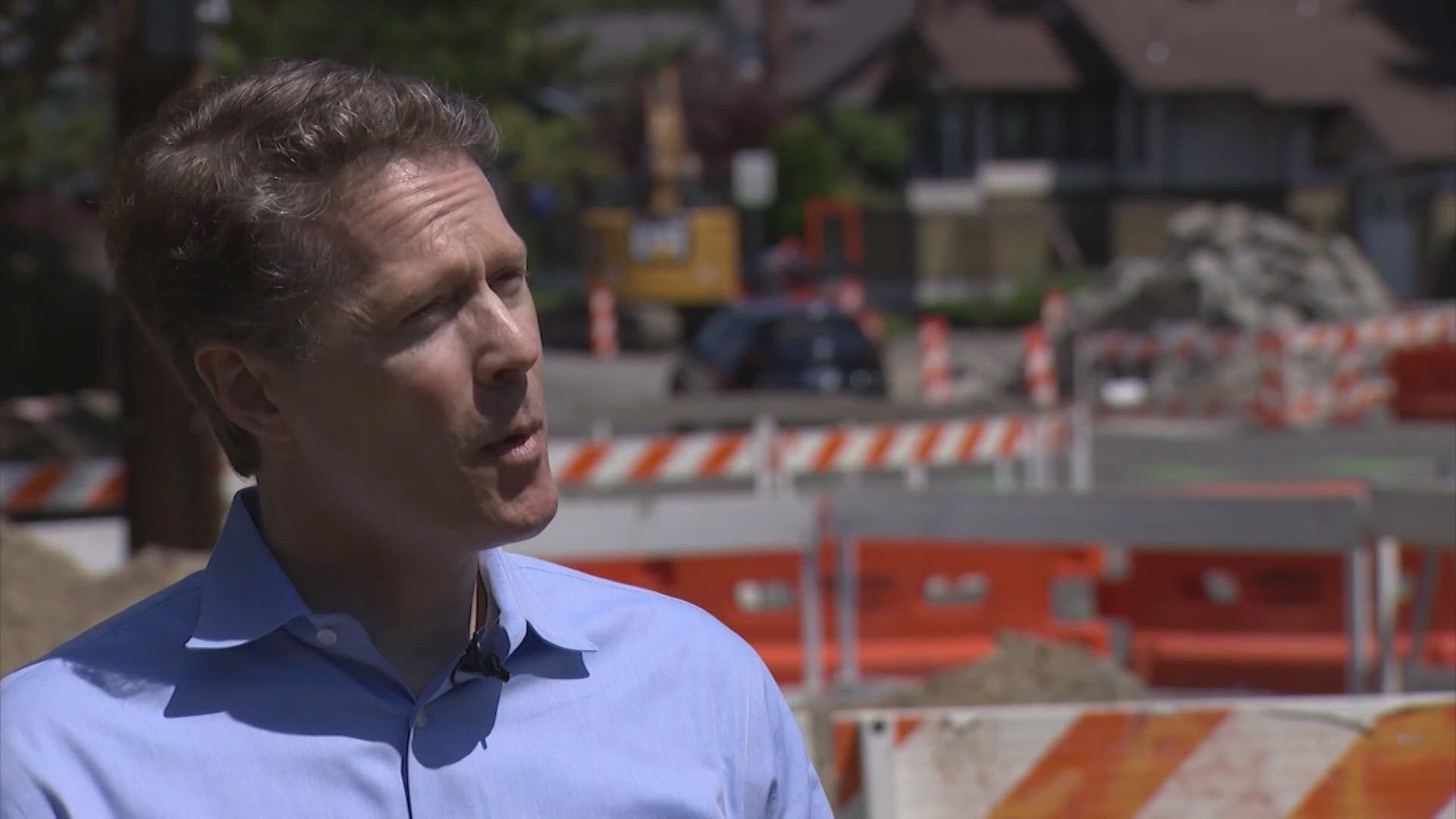SEATTLE — Seattle residents will vote on a $1.55 billion transportation levy on Nov. 5. If passed, it will be the largest levy in the city's history.
The levy has the support of Seattle Mayor Bruce Harrell and was approved by the Seattle City Council in July.
The property tax helps pay for various Seattle Department of Transportation projects, including safety improvements, bridge repairs, traffic signal upgrades and pothole repairs, a problem area in Washington as the state was rated worst in the nation for road condition.
The current transportation levy is set to expire at the end of this year. It was a nine-year levy that generated $930 million. Seattle has relied on levies for construction revenue for the last 18 years.
How much would it cost taxpayers?
The proposed levy would nearly double the annual rate for taxpayers. The additional tax rate under the proposition would be approximately 65 cents per $1,000 of assessed value for each property owner.
The tax amounts to $528 annually for properties assessed at the median value of $804,000. The current annual cost is $276. That comes out to roughly $44 a month, compared to the current $23 monthly payment.
The proposal also includes a $1.5 million fund for community outreach and education about property tax exemptions for qualified seniors, people with disabilities, and disabled veterans.
How will the money be used?
The $1.55 billion that will be accrued over eight years will be distributed to several transportation projects. Here is how some of the money in the levy would be allocated if approved:
- $403 million in street maintenance and modernization
- $221 million in bridge infrastructure and safety
- $193 million in pedestrian safety
- $160.5 million in Vision Zero and school and neighborhood safety
- $151 million in improving transit corridors and connections
- $133.5 million for bicycle safety
- $100 million to install and maintain traffic signals and improve mobility
- $69 million to better address climate change, protect the environment, and increase our tree canopy
- $66.5 million to activate public spaces, neighborhoods, and business districts
- $45 million for economy-focused improvements to our freight transportation system
- $7.5 million for good governance, oversight, and property tax relief education
What supporters of the levy say
The official statement in favor of the levy was submitted by Katie Garrow, the executive secretary-treasurer of MLK Labor, the central body of labor organizations in King County; Seattle Mayor Bruce Harrell; Rachel Smith, the CEO of Seattle Metropolitan Chamber of Commerce; and the Keep Seattle Moving campaign.
Supporters argue the proposition will provide Seattle with "safer streets, reduced congestion, and a more connected city for all."
Proponents support the proposal's focus on pressing safety and accessibility projects, including the repaving of 15 heavily-used corridors, repairs on several aging bridges and the creation of 500 blocks of new sidewalks.
Supporters also highlighted the fact that the package will receive oversight from an independent party to ensure accountability.
What opponents of the levy say
The official statement opposing the levy was submitted by Nina Martinez, the board chair of the Latino Civic Alliance; Margaret Pageler, a former member of the Seattle City Council; and Alex Pederson, a Seattle City Council member representing District 4.
Opponents argue the levy is too expensive and "uses Seattle’s middle class like an ATM machine."
They also argue it is unfair, saying landlords will be able to dump the tax onto tenants and increase their rent. Opponents also say the levy would be ineffective and allocate too much money on unnecessary projects like "rarely used bike lanes impeding small businesses."
Opponents are asking voters to vote "no" and send city leaders "back to the drawing board."

